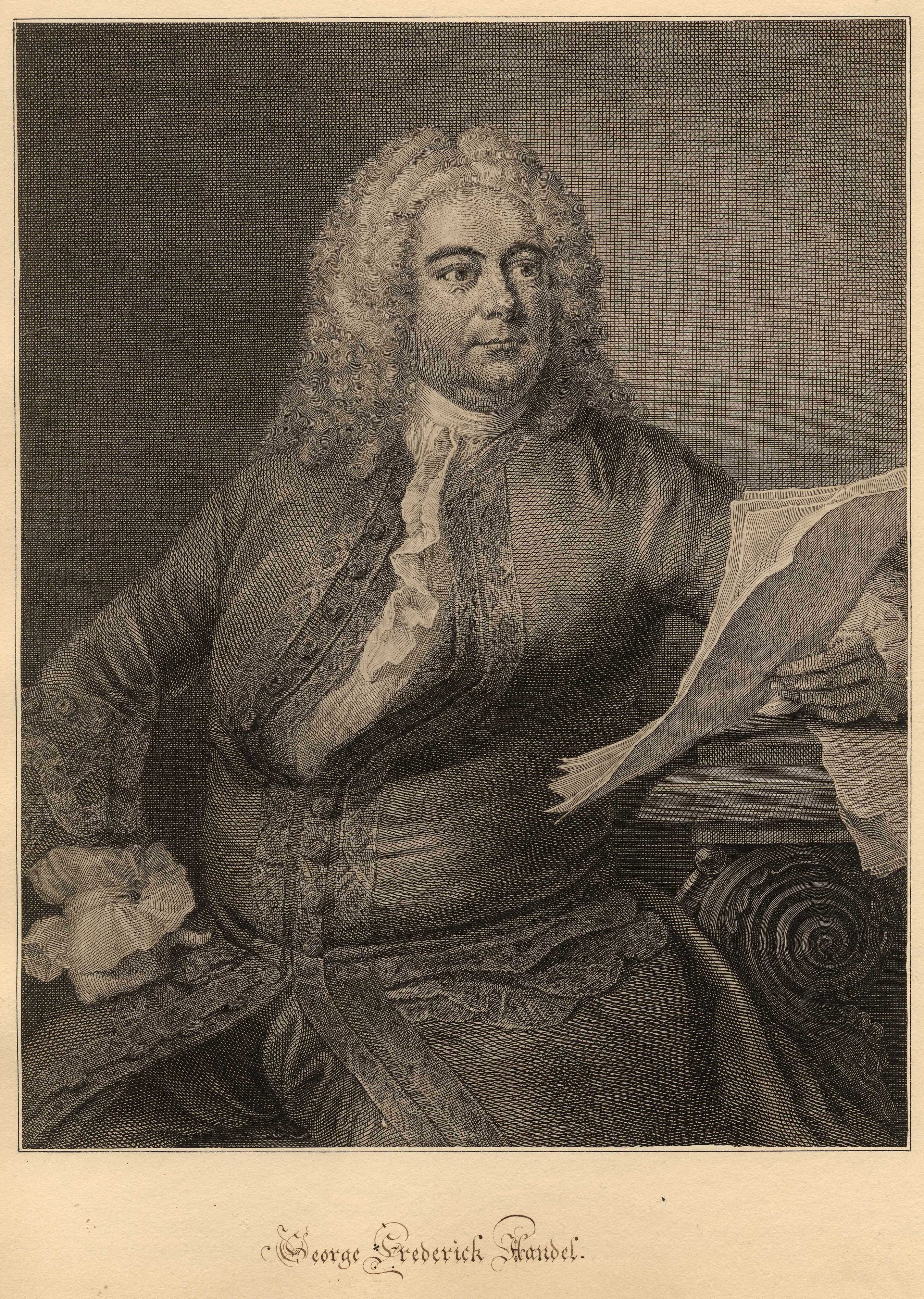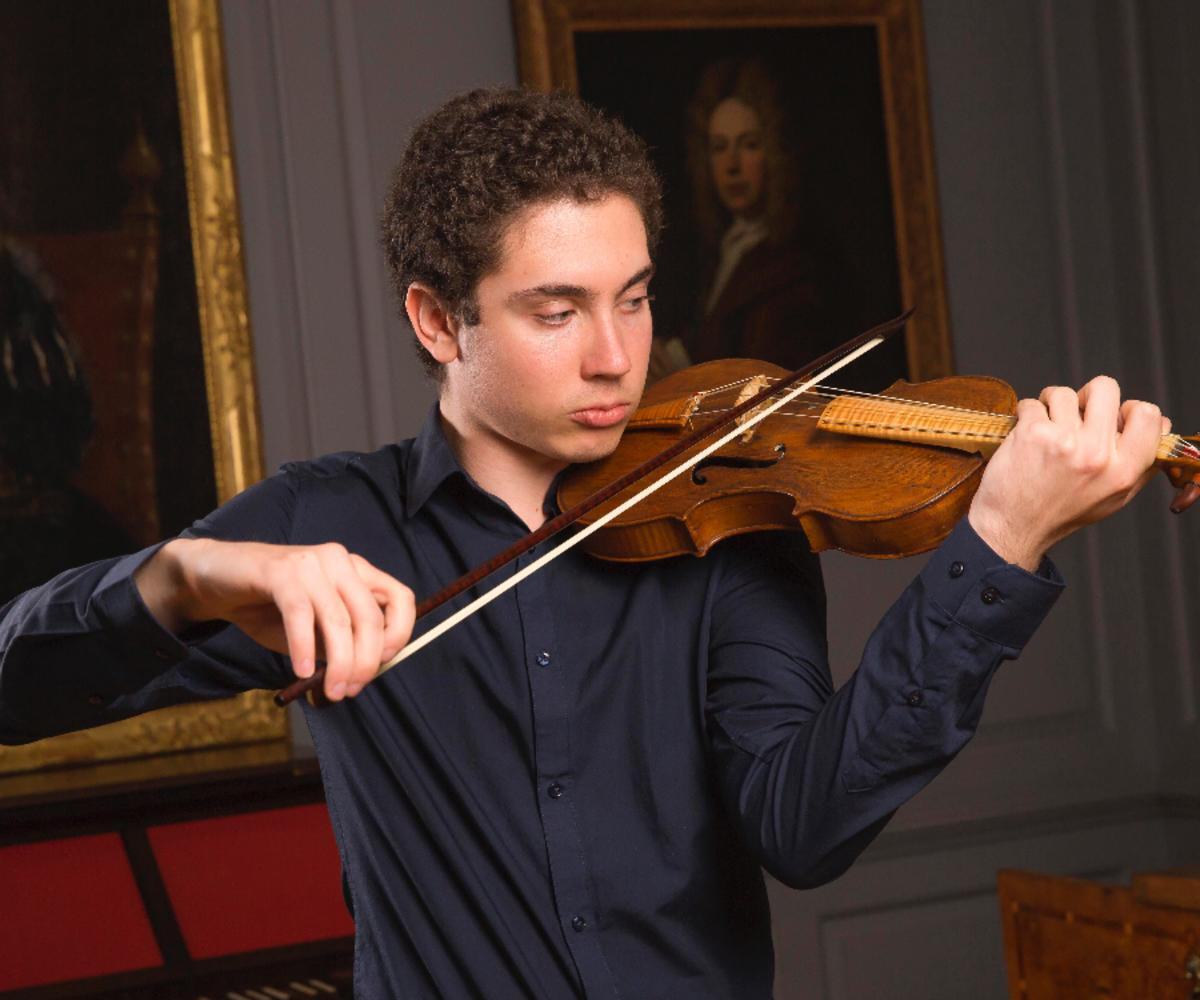BERENICE (HWV 38)
Libretto: Unknown, after Antonio Salvi, 1709
First performance: 18th May 1737, Covent Garden Theatre, London
Cast
- Anna Maria Strada del Pò (Soprano)
- Francesca Bertolli (Contralto)
- Gioacchino Conti, called 'Gizziello' (Soprano-castrato)
- Domenico Annibali (Alto-castrato)
- Maria Caterina Negri (Contralto)
- John Beard (Tenor)
- Henry Theodore Reinhold (Bass)

Synopsis
Act I
Queen Berenice attends the Roman ambassador Fabio. Fabio informs her that the Senate wishes her to wed the young Roman noble Alessandro who accompanies him. But Berenice is betrothed to Prince Demetrio, and refuses to be instructed in this matter; Alessandro is instantly smitten. Yet he refuses to press Rome’s suit on his own behalf, declaring that Berenice must offer him her hand herself.
Prince Demetrio actually loves Selene, the Queen’s sister. In order to thwart Berenice and set his beloved on the throne, Demetrio has plotted with an Egyptian enemy to overthrow the Queen. Aristobolo, head minister, announces that because Berenice spurns Rome’s offer, Alessandro must now seek Selene’s hand. Berenice determines to thwart this plan, and tricks Selene into agreeing to a union with Prince Arsace.
Act II
Ambassador Fabio predicts Roman conflict with Egypt. Selene defends herself to her lover, claiming she is only using Arsace to ultimately win Demetrio and defeat her sister. Demetrio again reveals his secret activities. The Queen overhears this and discovers the secret love affair; she summons her guards to take Demetrio away. Even after Arsace offers to relinquish Selene to Alessandro to spare warfare, Alessandro refuses; he longs only for Berenice. Demetrio is brought before the Queen, but defies her. Love alone, love for Selene inspires him. The Queen is furious.

Act III
The Queen is presented with letters confirming Demetrio’s treachery; now nothing stands in the way of his execution. In a dazed state, she removes the royal signet ring from her finger, and gives it to Fabio. Whoever returns it, she says, may claim her. He gives the Queen’s ring to Alessandro. Selene promises Arsace her hand if he can win Demetrio’s freedom. Arsace asks Alessandro’s help in freeing Demetrio. Arsace determines to convince the Queen of the Roman’s true love for her. Berenice is prepared to kill herself, but first wants to see Demetrio executed. Both Selence and even Arsace beg for mercy for Demetrio. The Queen’s ring is returned, but Alessandro still refuses to press a claim for her hand. The Queen is moved. In a sudden impulse, she offers herself and her throne to Alessandro.
Demetrio is pardoned; Prince Arsace generously renounces his own claim on Selene, and all the lovers are united.
(c) Rudolph Palmer, Newport Classics
Context
Handel’s health suffered it’s first major setback during the spring of 1737. He had been overworking in his attempts to build an audience in the face of the challenge presented by the Opera of the Nobility, his rivals resident at his old opera house, the King’s Theatre in Haymarket. The Earl of Shaftesbury reported:
‘Great fatigue and disappointment, affected him so much, that he was this Spring struck with the Palsy, which took entirely away, the use of 4 fingers of his right hand; and totally disabled him from Playing: And when the heats of the Summer 1737 came on, the Disorder seemed at times to affect his Understanding.’
This sad state of affairs is corroborated by Handel’s first biographer, Mainwaring, who discretely noted: ‘…how great his senses were disordered at intervals, for a long time, appeared from an hundred instances, which are better forgotten than recorded.’
It was in this environment that Berenice first saw the light of day – but only briefly. It seems that Handel did not direct the orchestra for the first performance on 18th May, but handed over to his assistant John Christopher Smith. Indeed, it is possible that the composer did not attend any of the four performances that Berenice attained – the fewest number of performances for the first run of any of his operas. He never revived it, and re-used only a few pieces in later works.
But there was one piece of good news before Handel departed to take the healing waters of Aix-la-Chapelle in October. On 11th June the financial burden of running an opera company finally caused the collapse of the Opera of the Nobility. The illness of the star castrato Farinelli led to the cancellation of the planned performance of Sabrina on 14th June to end the season. Farinelli travelled to Italy and never returned to London. The composer Porpora, who had led the company, followed soon after. Berenice was to be the last of Handel’s operas to have it’s premiere at the Covent Garden Theatre. For the next season Handel would be back in his old home in Haymarket, combining his company with the remnants of the Opera of the Nobility in a final attempt to re-establish Italian opera in London.


